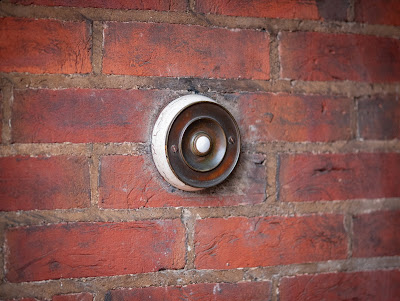Wired vs. Wireless Home Security Systems
There are many security systems on the market, but they all fall into two main categories: wired and wireless security systems. While both types of systems reliably protect your home, each has its own advantages and limitations that can determine whether they are suitable for a particular home. When you are shopping for a new security system, it is important to understand the pros and cons of wireless home security systems and wired home security systems in order to make the best choice for your family. Here's what most buyers love and hate about these two types of home security systems.
Benefits of wired security systems
Reliable and consistent: Wired security systems do not rely on sensors or radio frequencies. Instead, they're wired directly to your phone line, making them less likely to fail and less prone to false alarms. They are also not susceptible to electromagnetic interference from other devices, such as baby monitors and remote controls.
Less vulnerable to hacking: Hacking a wired security system is a difficult process that would involve someone needing to physically log into the system in order to make it malfunction. Considering the time, effort and know-how required to do this, it is highly unlikely that a wired system will be the target of a hack.
Convenient for large spaces: Wired security systems have the potential to cover multiple buildings on the same property, if required. They can also support multiple control panels and more sensors than a typical wireless system.
Easy installation and maintenance: Once the system is installed, it will operate consistently without the need for owners to change batteries or charge equipment. If you are moving into a new home with a wired security system, it is also easy to set up by simply calling the security provider of your choice and asking them to connect your system.
Disadvantages of wired security systems
Expensive installation: Wired security systems are easier to install during the process of building a house, so having one installed after the fact can be expensive. A security professional will need to drill holes in the walls and run low voltage wires to connect to the sensors. This process can be long, difficult and expensive.
Not mobile: Once a wired security system is in place, it is there forever. Uninstalling a wired security system can be as expensive and difficult as installing it, and many security professionals don't recommend moving wired systems, so they won't remove the system and reinstall it elsewhere.
Vulnerable to power outages: Almost all wired security systems have a backup battery to compensate for power outages, but if an outage lasts beyond battery life, the system will eventually shut down, potentially leaving your home vulnerable during an emergency.
Easier to disable: Although rare, a wired security system can be disabled by cutting the phone line outside a home. This vulnerability is unique to wired systems and is something to consider when deciding between wired and wireless security.
Wireless Security Systems Professionals
Easy installation and removal: Installing a wireless security system does not require holes or cables, and many wireless systems have a DIY installation process that eliminates installation fees. These systems can also be easily uninstalled and transported to a new home. They are ideal for tenants, historic homes, and buildings with a brick, stone or marble interior that would be difficult to drill for a wired system.
simple installation and maintenance: Once installed, the system will work consistently without homeowners having to change batteries or charge equipment. If you are moving into a new home with a wired security system, it is also easy to set up by simply calling the security provider of your choice and asking to connect your system.
Cons of wired security systems
Expensive installation:Wired security systems are most easily installed during the home building process, so having one installed after the fact can be expensive. A security professional will need to drill holes in the walls and run low-voltage cables to connect to the sensors. This process can be time-consuming, difficult and costly.
Not mobile: Once a wired security system is in place, it is there forever. Uninstalling a wired security system can be as expensive and difficult as installing one, and many security professionals don't recommend moving wired systems, so they won't remove the system and reinstall it elsewhere.
Vulnerable to power outages:Almost all wired security systems have a battery backup in place to account for power outages, but if an outage lasts beyond the battery life, the system will eventually shut down, potentially leaving your vulnerable house in an emergency.
Easier to turn off. Although it is rare, a wired security system can be disabled by cutting the phone line outside a house: This vulnerability is unique to wired systems and should be considered when choosing between wired and wireless security.
Benefits of wireless security systems
Easy installation and removal:Installing a wireless security system doesn't require drilling holes or running wires, and many wireless systems have a DIY installation process that eliminates installation costs. These systems can also be easily uninstalled and transported to a new residence. They are ideal for tenants, historic homes, and buildings with a brick, stone or marble interior that would be difficult to drill through for a hard-wired system.
Highly customizable: Since wireless systems are not wired, you can easily add equipment, move equipment, and modify the system. Wireless systems can also usually sync with other home automation systems to provide special features like smart locks, smart lights, and smart thermostats.
Remote accessibility. Wireless systems can be monitored and controlled remotely using an app, email alerts, or SMS alerts. This eliminates the need to use a home control keypad for all basic functions.
Less vulnerable: Wireless systems do not have a single line that can be cut by intruders to disable the system. Also, since most components of a wireless system are battery operated, they are not vulnerable to power outages in the same way that a wired system is.
Disadvantages of wireless security systems
Less reliable: As with a WLAN or cell phone, the reliability of a wireless system can be affected by electromagnetic interference, structural interference, or even bad weather. For this reason, wireless security systems are also more likely to be triggered by false positives than a wired system.
Vulnerable to hackers:It is important to check the specifications of your wireless system to make sure it is not an easy target for hackers. Wireless systems that lack encrypted or authenticated signals from access point sensors could be hacked and their signals blocked, disabling the alarm and making it easier for intruders to enter a home unnoticed.
Not ideal for large spaces: Wireless security sensors usually have distance limits, which means they're not ideal if you have a large house or need coverage for a large property with multiple buildings. The average range of a wireless radio signal is around 150 meters.
High maintenance: The components of a wireless system may be electrical, but many run on batteries, which means the batteries will need to be changed or charged periodically. If you have a wireless security system, it's important to carefully monitor the battery life of each part to ensure everything is working properly.
Wired Systems vs. wireless: the end result
Any security system has pros and cons, but what matters most is what you need from the system and how you expect it to work in your home. If you are living in a large property or want the benefit of permanence and reliability, a wired security system will undoubtedly be the best choice. Meanwhile, those living in a typical single-family home who value personalization and flexibility may find wireless security a better choice. But no matter which system you choose, you will be making an informed choice that will ultimately make your home a safer place for your family, and that is the most important thing.




Comments
Post a Comment